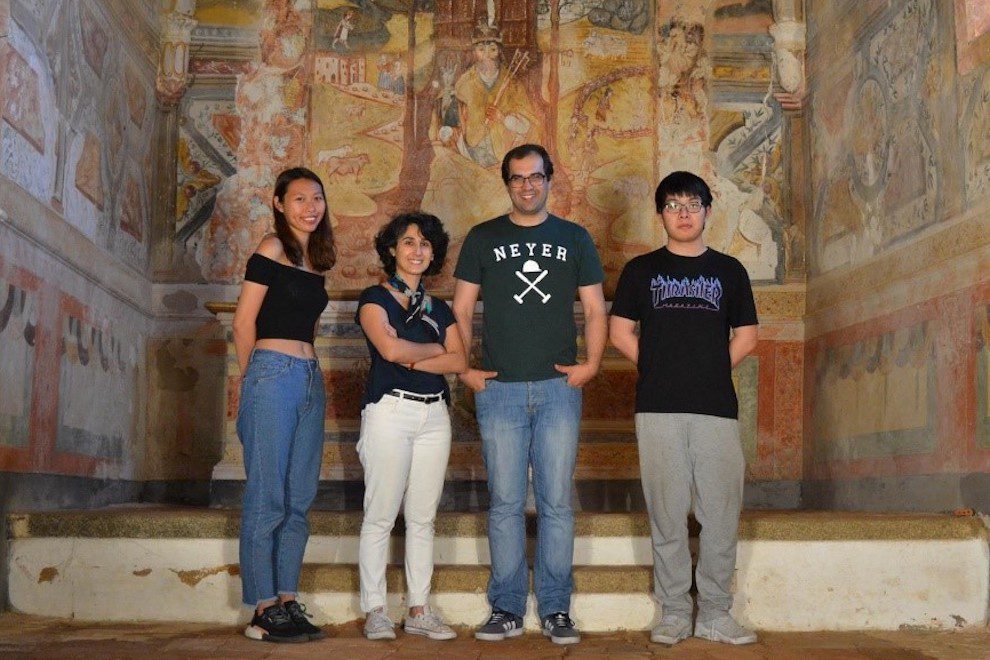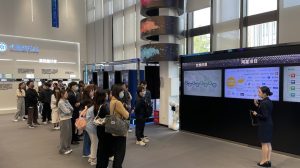A treasure trove of Roman buildings and ruins, medieval monuments, Renaissance artefacts, and Baroque-style architecture in Portugal is helping Heritage Management undergraduates master their studies in Macao.
IFTM and the University of Évora are offering IFTM students the opportunity to complete an internship in the HERCULES Laboratory at the Portuguese university. HERCULES is a high-technology facility for research into tangible cultural heritage.
IFTM undergraduates are making the most of the partnership. Selena Lei was an intern in Évora, a heritage-rich city in southern Portugal, in the second semester of academic year 2018/19.
“The internship really allowed me to practise what I had learned previously in class, especially in the Documentation of Cultural Heritage course,” Selena says.
“My supervisor at HERCULES was a PhD candidate studying paintings in chapels. I was fortunate to have the chance to go inside chapels that are closed to the general public, helping to take really zoomed-in pictures of their interior and then transforming these images into 3D models.”
HERCULES uses state-of-the-art techniques, including high-resolution chemical analysis and mass spectrometry, to help preserve the past. Some of the research is into artefacts found across Évora. UNESCO designated the city as a World Heritage Site in 1986.
“These chapels are not open to the public. I am really grateful that, due to research purposes, I could visit many of them,” Selena says. “Through this experience, I also got to realise the importance of building 3D models of heritage sites, so we can present these fragile but yet precious fragments of heritage to the general public.”
Selena says the heritage preservation practices in Portugal impressed her. She found it remarkable that efforts are made to preserve not only important buildings such as cathedrals, but also small chapels serving the families that own the estates where they are situated.
A precious chance
The feedback from IFTM students is the internships at HERCULES build their skills and extend their knowledge. IFTM undergraduates must complete a 6-month internship in Year 3. They can serve their internships in Macao or other places around the world.
Selena says her time in Portugal highlights the importance of a multidisciplinary approach to heritage studies. “There were architects, historians and experts in other fields at the lab, from different parts of the world,” she says. “We shared different views and experiences about cultural heritage. That taught me other ways of seeing the world.”
Clare Chen did his internship at HERCULES also in academic year 2018/19. The Heritage Management student undertook digital conservation work, using techniques such as 3D modelling to catalogue and document historical artefacts.
The internship was an opportunity to apply skills learned at IFTM. “The internship complemented it with practical skills,” he says. His time in the laboratory made him more determined than ever to pursue a career in heritage management.
Clare took part in international cooperation projects. One such endeavour was the Integrated Platform for the European Research Infrastructure on Cultural Heritage (IPERION CH) project being pursued by a consortium to build infrastructure for research into restoring and conserving European cultural heritage. Another endeavour Clare worked on was the International Centre for the Study of the Preservation and Restoration of Cultural Property (ICCROM) Mora Sample Collection, an archive of some 1,400 historic wall paintings or their fragments found in almost 40 countries.
It was Clare’s first expedition outside Greater China, but he adapted to life in Portugal by heeding the saying, “When in Rome, do as the Romans do,” and immersing himself in the culture.
The HERCULES internship was an experience of which he whole-heartedly approves. “This is a precious chance for us to apply what we’ve learned, and grasp additional knowledge from a real-world experience, before entering the labour market,” he says.
“We are allowed to make mistakes. We have supervisors to guide us. We are encouraged to experiment and to ask questions. An internship gives us flexibility and an opportunity to gain a more comprehensive knowledge of our field of study.”









